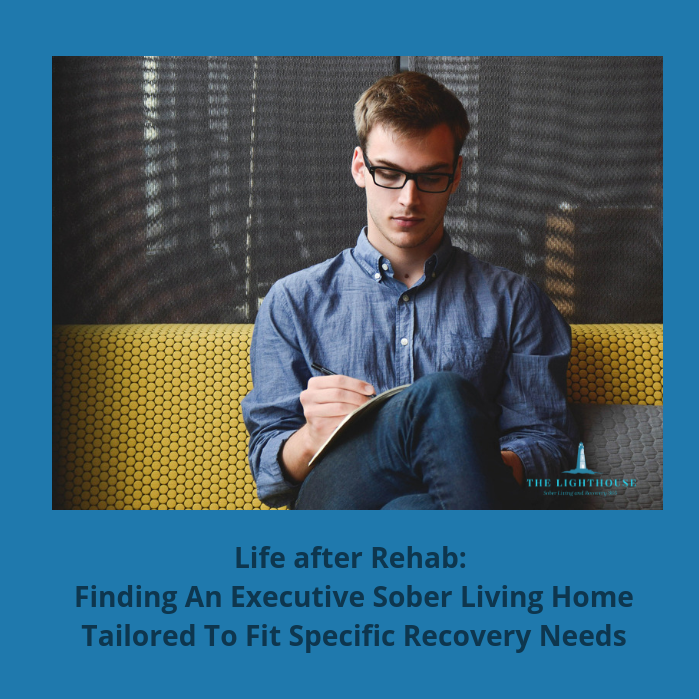Life after Rehab: Finding An Executive Sober Living Home Tailored To Fit Specific Recovery Needs
Discharge from rehab is an exciting time. You have completed 30 days or more of intensive inpatient therapy. You have never felt more alive and ready to get back to your family, work, and life. You feel strong and empowered, but still a bit reluctant to return to the hectic demands of life. Meeting these life demands caused the wake of chaos which brought you to hit your bottom. But now, You are serious about staying sober!
During treatment, you learned that the main challenges in sobriety begin after discharge from an inpatient program.
Are you ready to go back to the chaos of life?
Inpatient treatment planted the seed of recovery, but it needs structure, safety, and security to grow. You’ve decided to discharge to a sober living home to learn how to use coping skills, establish sober support, and how to live a life free from alcohol and drugs.
Before you choose a sober living home ANSWER these questions to ensure you find an environment and program compatible with your specific needs.
The questions are not much different than the ones used when you put your trust into the hands of a treatment center. Understanding how you vetted your inpatient program will help your transition to a sober living program for a much smoother transition into your life in recovery.
Let’s look at several factors you consider before choosing a sober living program and home:
Who are the other residents residing in the house?
It’s important to know the types of persons residing in the home.
Does it make sense for you to go and live in a home filled with chaos or residents you cannot relate too?
Choosing a program that resembles the lifestyle you left before you entered treatment will help you transition into a new life in recovery. The ability to relate to other residents reduces fear, encourages participation, and builds strong bonds with new peers in recovery.
Consider these demographics when seeking a sober living program.
-
Age
-
Profession
-
Personal interests
-
Substance use disorder
Even though, you have always heard a drug is a drug or an addiction to alcohol is no different than it is to heroin.
Research studies have proven that addiction to alcohol is quite the same as addiction to heroin, in regards to obsessions to use (cravings), negative self-talk, guilt, shame, and self-esteem. The reality is that it is still hard to relate to those whose addiction might have led to more devastation or dishonor.
Choosing to live in a residence that caters to an executive lifestyle will ease your transition into your role in the community. The connections you make in early recovery can become long-term friendships based on support and care.
Think fraternity (minus the booze), brotherhood, and amiable neighbor.
Living in a home with others seeking the same goals as yourself will afford you the opportunity to create life-long bonds and support. Choosing sober living after treatment establishes a sober support network of peers and connections in recovery.
How much will it cost to reside in a sober living home?
Whenever you make a purchase, the cost is always a factor. We all know that paying more money for something doesn’t mean you’re getting the best services, so it’s vital to investigate the sober living home.
You will need to make sure the program suits your needs, keeps you safe, and comfortable while helping you transition into a new path on the road of recovery.
Rules vary depending on the facility, but there are some common rules, such as:
-
Maintaining your sobriety (random toxicology)
-
Attending house meetings,
-
Working a program (attending meetings, recovery coaching, outpatient programs, and off-site therapeutic services)
-
Curfews, able to come and go as you please
-
Options to go to work, work from the home, or focus solely on recovery while residing in the home
Even in homes with few residents, rules are vital to the proper functioning of the home and the transition to a life in recovery,
Many sober living houses are privately owned and not funded by the state. Due to this insurance often will not cover the cost of this type of care. Executive sober living programs can be expensive. Keep in mind paying more money doesn’t guarantee successful results of treatment.
What are the amenities provided by and available in the home?
-
Do you have a private room, option to workout, swim, proper nutrition, and other factors to make your stay more comfortable?
-
Will transportation be provided?
-
Will there be workspaces to conduct business?
-
Will the house prepare meals to fit your dietary needs?
Required staff credentials
-
Many homes are staffed with Recovery Coaches or Peer Advocates who are state certified and have intimate knowledge of how to sustain a life in recovery.
-
Sober living homes do not always require staff credentials. This, of course, is one of the reasons why insurance will not always cover the entire or partial cost. If the home is not a certified addiction treatment center credentials are often not required, but it doesn’t mean the staff shouldn’t understand recovery. In fact, in most executive settings the staff possess intimate knowledge of recovery.
-
Is the staff in recovery? Will they understand and relate to the obsession to use the depression that comes with early recovery, and the cunningness of the disease of addiction?
-
Have prior residents left positive feedback and recommendations about the staff’s attitude, openness, and ability to meet the client where they are at in their recovery?
What outpatient programs or therapeutic communities is the sober living home affiliated with?
Is the program geared toward the individual’s recovery pathway or more rigid? Addiction treatment programs follow the individual or personal path to recovery. Most often programs fit your individual needs. It is vital that the staff is willing to further assist you in finding outpatient treatment to fit the needs of your individual program.
If not included in the program will the program offer community resources for wellness, recovery, or recovery coaches?
Other alternative therapies affiliates might include:
-
Equine therapy
-
Recreational therapy
-
Yoga, meditation, or Reiki
A sober living home is a stepping stone into life-long recovery.
Life in early recovery is difficult for everyone. Understanding your motivation for choosing a sober living program will help you to choose a program optimal for your needs.
Inpatient treatment was safe. You didn’t have to attend to the needs of your business or family. It’s expected of you to perform your duties upon discharge. Expected responsibilities as an executive, employer, spouse, parent, and member of the community. The fear of returning to your role causes stress.
A sober living program is an extension of your inpatient rehabilitation. It will provide you with the structure and support while learning to live life without alcohol and other illicit drugs. A program can help you to develop the structure and routines in recovery while living in a setting that allows you to be part of society.
Developing the discipline to do whatever it takes to stay sober is difficult. While in rehab you learned to change behaviors and to be non-reactive to stressful situations which led to drinking episodes.
You will have to follow the rules when staying under the roof of a sober living home. These rules are set to help you stay safe as you develop the discipline to live sober in recovery.
When you choose a sober living home, you are opting to stay away from your family and the comforts of your own home. It is essential that your transition into recovery is comfortable as you slip into your new role.
Choosing to reside in a home that meets your needs is vital to a smooth transition. Seek a program that has a small intimate setting so you can build connections, rapport, and sober support. Look for a house that is exclusive and quiet so you can learn to relax in your new role in recovery.
You are opting to find solace in a home away from home as you transition from rehab back into the world of business, finance, or even retirement. Preparing to handle the wins and losses of life without the need or desire to drink away the pain, frustration, or happiness will take patience and support.
Please share the post in order to help other executives understand how to find the perfect sober living home.
The Lighthouse is always available to answer the questions or ease your worry about a sober living home. You owe yourself a fulfilling life in recovery



